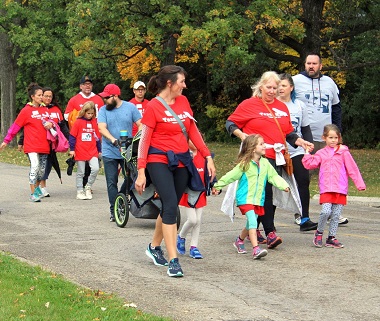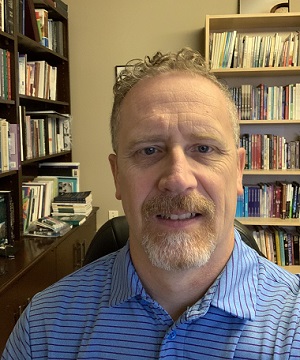
Sometimes church members can participate in worship by joining in the local Sunday morning Terry Fox Run.
Creating Conversation is a weekly editorial, curated by the Centre for Missional Leadership (CML), which gives opportunity for people to speak about issues they believe are vital for the church in Vancouver.
One of the goals of this weekly article is to spark dialogue – and action. We invite you to join the dialogue here on the Church for Vancouver website.
We also invite you to use the article as a discussion starter with your small group, church staff, friends and your neighbours. Thanks for participating in the conversation!
As one zooms out to take in Scripture from a wider scope, one can see that God’s mission in this world expands like ripples in a pond1 – from the splash of divine calling upon an older couple in Genesis 12, on to their descendants, who then become a people group, then a nation and eventually a wide and growing people across and within many nations, also known as the church.
Rescue and restoration
What is the ripple of God’s mission in the world about? There are of course different ways to articulate it, but perhaps one way involves two words: rescue and restoration.
Each of these words bears much unpacking but if you’re reading this article I am assuming you have a bit of a handle on what these two words are about. They have unfortunately often found themselves at odds with each other among God’s people from time to time; the pendulum swinging from one to the other.
One word reflects a propensity to ‘save souls’ and the other to ‘seek justice.’ I happen to like both words and think them to be intrinsically connected. Regardless, I’m not here to argue for or against these words, or even for them to be held together, although that is where I fall out on the matter.
Rather, the point I’d like to make is that no matter one’s affinity with either or both words – rescue and/or restoration – it is important that we don’t miss the missional point of God’s rippling mission in the world – not that we do mission ‘for’ God2, but that we invite the world into an experience of being ‘with’ God, our Emmanuel.
Which is to say that it is important we don’t separate mission from discipleship, service from spiritual formation, communication for God from communion with God.
Being with
In our success-oriented society that values business-models and leadership ideologies, ‘doing for’ over ‘being with’ is highly contagious and addictive, even rewarded, including within the church, especially when the church is mission oriented.
I’m all for the church creatively engaging with our world through some form of mission as we feel God calling us. However, completing some form of rescue/restoration project or program that doesn’t begin to open a way to move us and others towards a closer union with God somehow misses the missional mark.
It might be a good thing we are doing for God or the church, but if that good thing ‘for’ God has become an ultimate thing then I think we need to hear Augustine when he writes about the sin of ‘disordered loves’3. In a world and church that loves whatever is bigger, better, faster, a ‘with God’ church might be described as ‘slow church.’
Slow church
And I have to wonder if ‘slow church’ might not be more in line with what individuals and communities are longing for as we emerge post-pandemic.
I think it is what the soul craves, indeed what the soul of the church craves, since I believe that is what the soul was made for – to be in union with God. And that communion deserves time – time spent developing and forming our interior life in the image of Christ and cultivating a ‘grace saturated’ community.
What neighbourhood doesn’t long to be part of a community of grace? Church programs and projects no longer attract people – at least not as they once did – but certainly when people genuinely spend time with God individually and collectively, there is something deeply attractive about that community (Zechariah 8:23).
And then from that place – from being a community who has genuinely spent time ‘with’ God, being formed and shaped by God’s values and virtues (Exodus 34:6-7; Micah 6:8; Matthew 5:3-10; Matthew 11:28-30; Galatians 5:22-23; Colossians 3:12-17) – when a Christ community shows up in the wider community, it is genuinely hard to dismiss.
In our secular culture that seems to value the principles of the kingdom but not the king, a church that functions, not from a place of ‘in the world for God’s sake,’ but ‘with God for the sake of the world’ can spark a holy dissonance.
Like when a Christ community commissions some of its members to participate in Sunday worship, not by playing in the praise team or singing in the choir, but by putting on their running shoes to join in the local Sunday morning Terry Fox Run. One community did just that, and you could almost hear the ice break each year, when the organizers saw those who had been with God show up and joyfully and gratefully announce to all: “Here comes the church!”

Bernie Skelding
And not just the church of course, but also a beautiful expression of God’s presence and shekinah glory. May the glory of God fill the earth!
1 Lectio 365 Devotional, by Prayer 24/7
2 Skye Jethani, With: Reimagining the Way You Relate to God
3 Augustine, Confessions
Bernie Skelding grew up in the faith at Cheyne Presbyterian Church in Stoney Creek, Ontario, began congregational ministry at St. Andrew’s Presbyterian Church, Wingham, and now enjoys ministering at Coquitlam Presbyterian Church on the West Coast alongside a brilliant ministry team and a congregation willing to discover new ways of experiencing Emmanuel and learning richer ways to love God and neighbour in the midst of an unsettled season.
